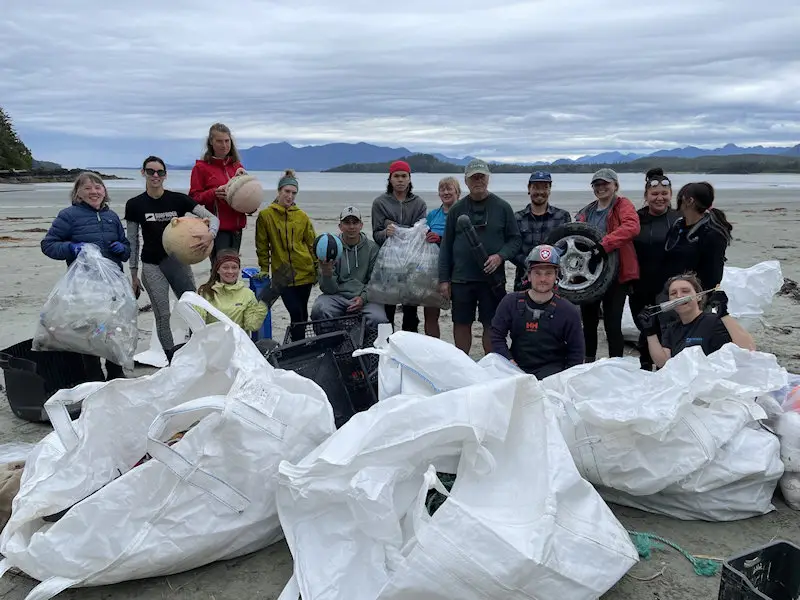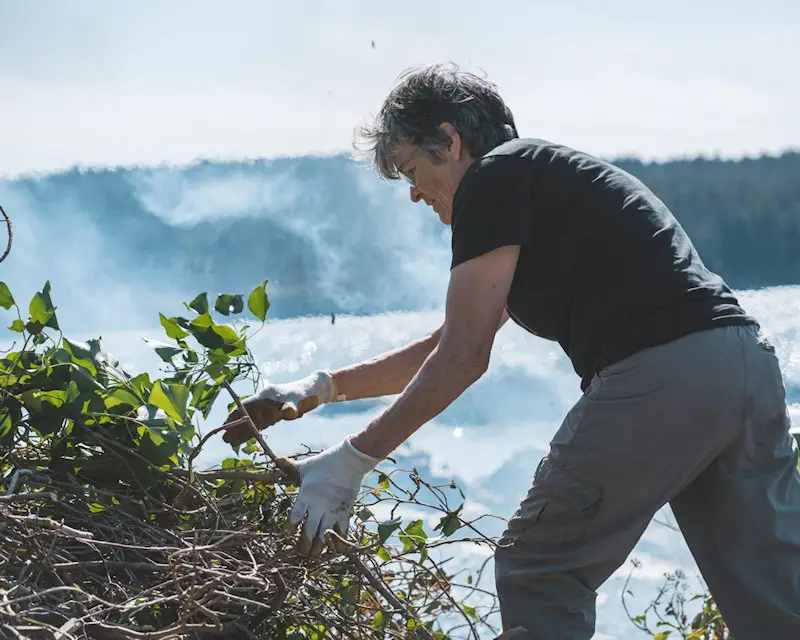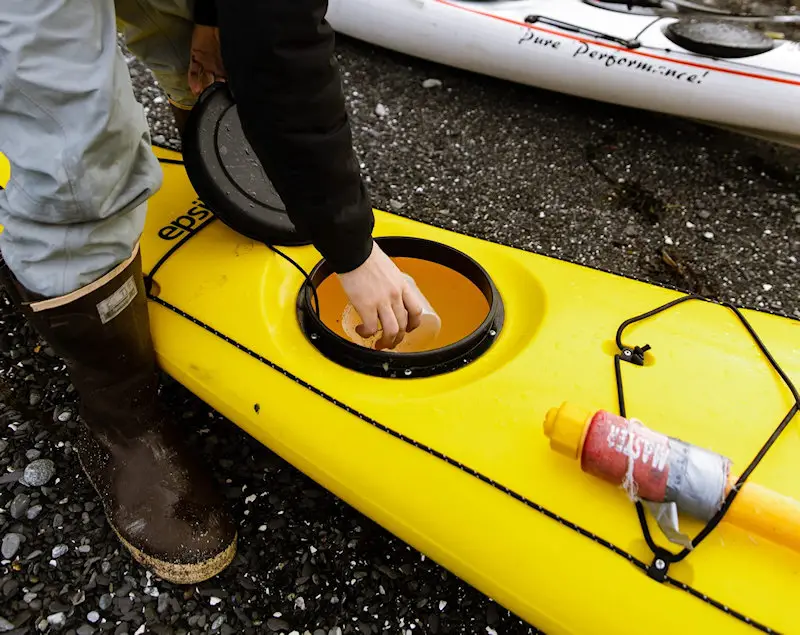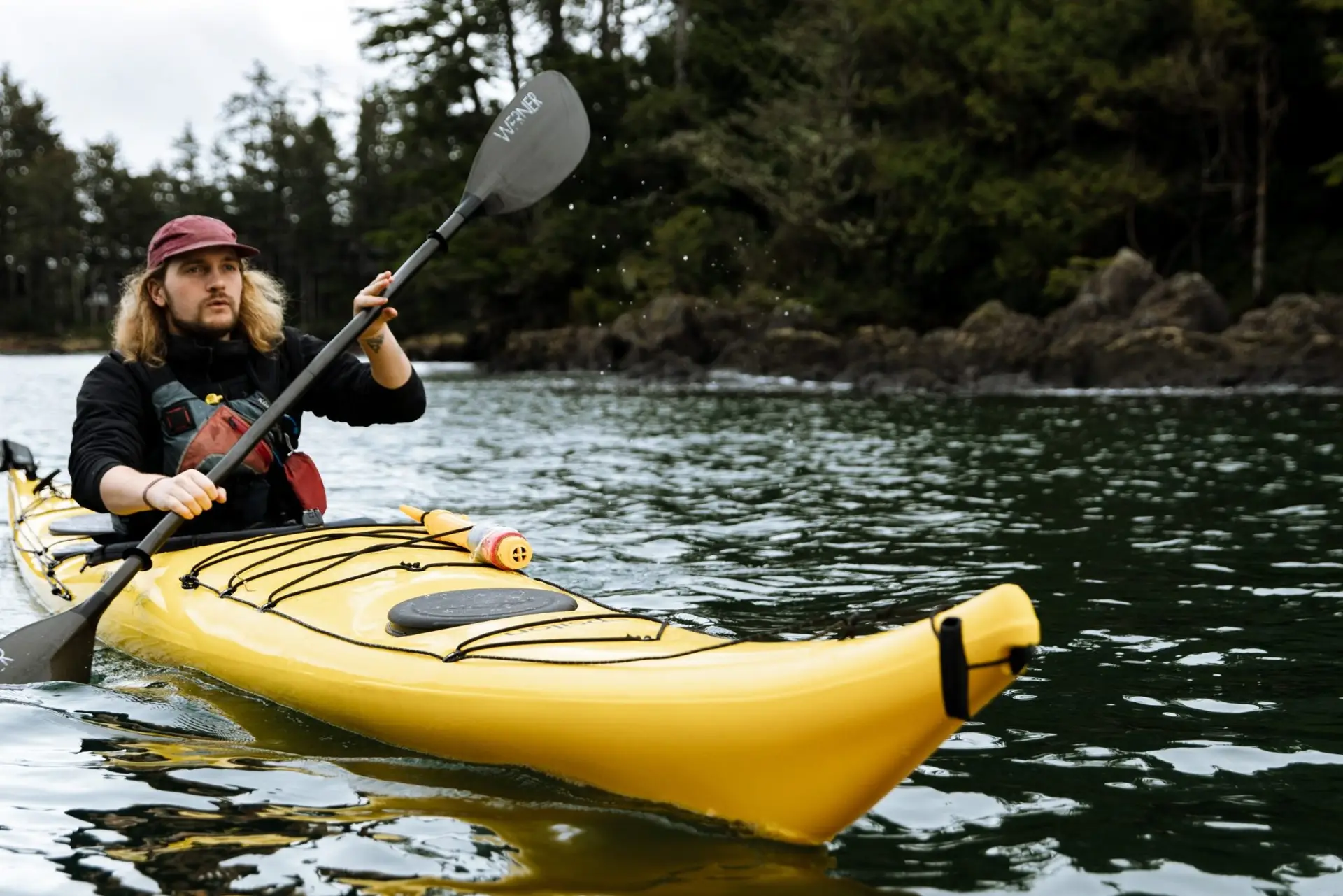We invite volunteers to join as we work with other organizations to collect, sort, and remove larger debris from shorelines. We have also worked with volunteers to remove invasive species from Gerald Island. Join us and give your paddle a purpose.
We conduct a number of on-the-ground stewardship initiatives annually. These mostly include marine debris cleanups and invasive species removals. Our efforts help alleviate some of the pressures our marine environments and local wildlife face and help us build and maintain a safe and sustainable network of marine trails. As we are growing our volunteer community, we are looking into more means of stewarding the coast together.

Marine Debris Cleanup
Since 2021, BC Marine Trails volunteers have circumnavigated Vargas Island every May, stopping at each beach to remove marine debris. This is a collaborative effort between BC Marine Trails, Surfrider Pacific Rim, Western Canada Marine Response Corporation, and Maaqtusiis Secondary School. Watch out for announcements regarding next year’s event!
In 2024, we launched the Clayoquot Marine Debris Drop Zone Program in collaboration with BC Parks and Surfrider Pacific Rim. Read more about how we removed 4000 lbs of debris in 2024!
Invasive Species Removal
Invasive species, like English Ivy, pose a constant threat to biodiversity and can create unsuitable wildlife habitat and forage availability.
One of our longest running initiatives has been the removal of English Ivy on Gerald Island. Watch out for our next Gerald Island event — every April and September. Together, we can protect the island’s biodiversity and ensure a healthy environment for generations to come.


World Oceans Week
WOW! Each year between June 1-8, we promote World Oceans Week in collaboration with Ocean Wise. We encourage everyone to join this national conservation effort and collect shoreline litter while exploring our beautiful coast.
When it comes time to register or participate in an event, check out our WOW page here. Typically, this will be updated by early May.



